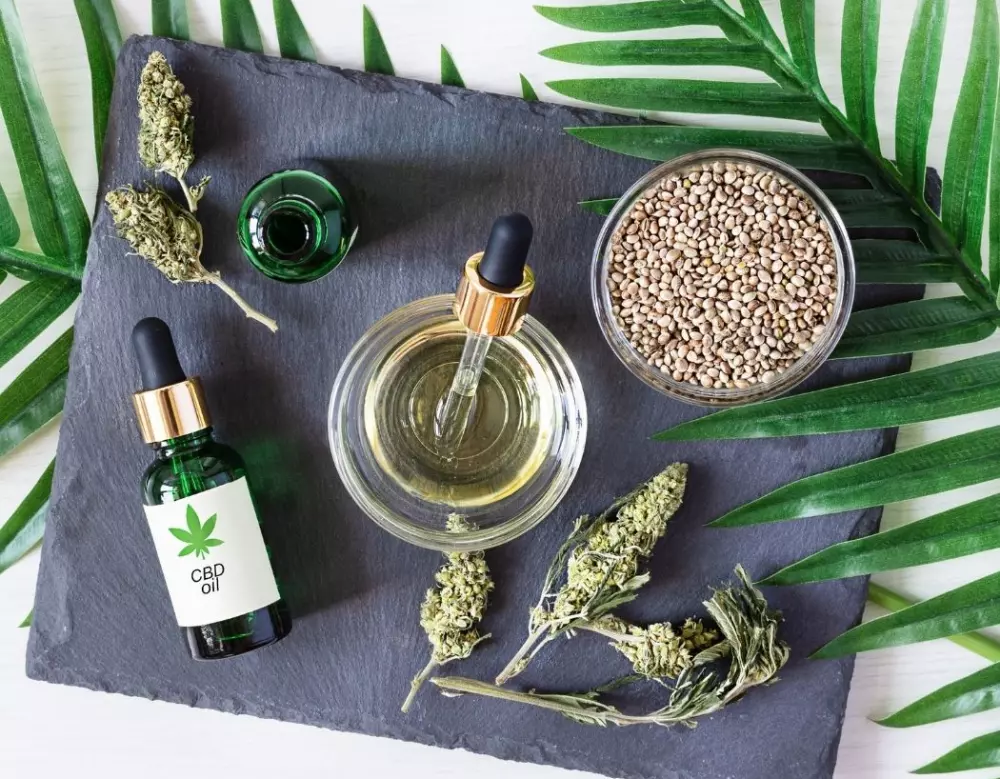What’s the deal with CBD?
Those three little letters have generated a lot of buzz in recent years – and a lot of misinformation. Let’s get down to the facts with a comprehensive crash course in all things you need to know about CBD going into 2021.
What is CBD?
Cannabidiol, or CBD for short, is one of more than 100 compounds called cannabinoids produced by the cannabis plant. But wait… doesn’t CBD come from hemp plants? Yes, but hemp is cannabis. The difference in the language around these two words is derived from a legal definition as to how much THC the plant produces. If a plant produces less than .3% THC, it is considered hemp; if more than that, cannabis. Both plants produce CBD, but cannabis and hemp differ mainly in their ratios of cannabinoids. Well cultivated hemp plants and flower can look indistinguishable from cannabis, and these plants can be a rich sources of terpenes and other minor cannabinoids.
Is CBD Legal?
Hemp-derived CBD is federally legal across the United States under the Farm Bill of 2018. This made it legal to sell, cultivate and transport CBD, and opened up a huge industry for hemp-derived CBD products that we now see everywhere. In legal cannabis markets, licensed dispensaries may sell CBD products made from plants with more than .3% THC and with very low levels of THC, but these products are still considered illegal outside of their markets.
Also in 2018, the FDA approved a drug called Epidiolex, an anti-seizure CBD medication that became the first federally approved cannabis drug. As such, CBD as a molecular compound falls under the jurisdiction of FDA oversight, and the FDA has long ruled that approved drugs may not be added to food and beverages (you can’t order a shot of Tylenol for your cocktail, for example). This loophole put an end to the onsite consumption of CBD at bars, restaurants and coffee shops, and has created a sticky situation for the variety of CBD food and beverage products that are available in the marketplace, but is likely to be resolved in the future. It hasn’t had a huge effect on the success and availability of these products in the marketplace.
What Are the Effects of CBD?
CBD is non-inebriating. You may have heard CBD called “non-psychoactive,” but this terminology is not quite accurate. CBD is psychoactive in that it alters your brain to achieve some effect (i.e., relaxing you), but it does not and will not get you high.
CBD is increasingly becoming known for its medicinal effects, and is generally considered to have anti-anxiety, relaxing, pain management, anti-seizure, anti-inflammatory, and sleep-inducing qualities. The dosage, application method and individual endocannabinoid systems (the receptor systems in our bodies that interact with cannabinoids) all contribute to CBD’s efficacy in treating a variety of ailments.
How Should I Consume CBD?
CBD can be consumed like any other cannabis product, and is now widely available in nearly any format. Popular ingestion methods include:
Tinctures
Oil-based tinctures containing CBD and occasionally other botanicals and blends can be added into food and beverages or taken sublingually.
Infused Foods and Beverages
From honeys and apple cider vinegars to olive oils and hot sauces, to CBD Sparkling Waters and CBD Artisan Iced Teas, there are so many great products out there to make adding a little CBD to your life super easy.
Smoking and Vaping
As with consuming THC, this is the fastest-acting way to consume CBD. You can find a wide variety of CBD vape pens to choose from, and hemp CBD flower can be smoked.
Topicals
Using CBD as a pain management tool with topicals is a great way to provided targeted on-the-spot relief. From creams and lotions, to bath bombs and the CBD beauty space, this is a booming and mainstreaming industry with a wide variety of product options. Probably the best way to get your grandma to start using CBD.
How Much Should I Take?
First of all, it’s worth noting that you really cannot “take too much” CBD like you might with THC. Second, as always with cannabis, dosage is highly individuated and determined by a number of factors. Third, there’s conflicting data regarding CBD dosage and efficacy, with some findings suggesting that an effective dose of CBD is 25 mg. while others range to 25 mg. per pound of body weight, which is a huge difference.
Start with the recommended dose and explore from there to find what works best for you and your needs. Keeping track in a dosage journal will help.
How Do I Know What To Buy?
This is perhaps the most important question in today’s CBD marketplace, because the quality in product varies widely. Because these products are not strictly regulated, unfortunately, there are some not-so-great products out there (some studies have even found products marketed as CBD containing zero CBD). Here are a few things to look for when purchasing your CBD:
Find a trusted vendor.
As a rule of thumb, just say “no” to gas-station CBD. Cities across the country are increasingly home to high-end CBD shops and wellness centers that only carry quality, trusted products.
Do your research.
Look up a product before you buy it. High-quality CBD products will be able to provide a certificate of analysis or COA, which provides testing results indicating cannabinoid percentages, terpene profiles, and presence of pesticides. If a brand cannot provide this information, find one that can!
Don’t fall for imposter language.
Don’t fall for products made from hemp seed oil; the seed of the plant produces almost no cannabinoids, so these products will not offer the therapeutic benefits of CBD. Look for products labelled Hemp Extract or CBD Extract.
